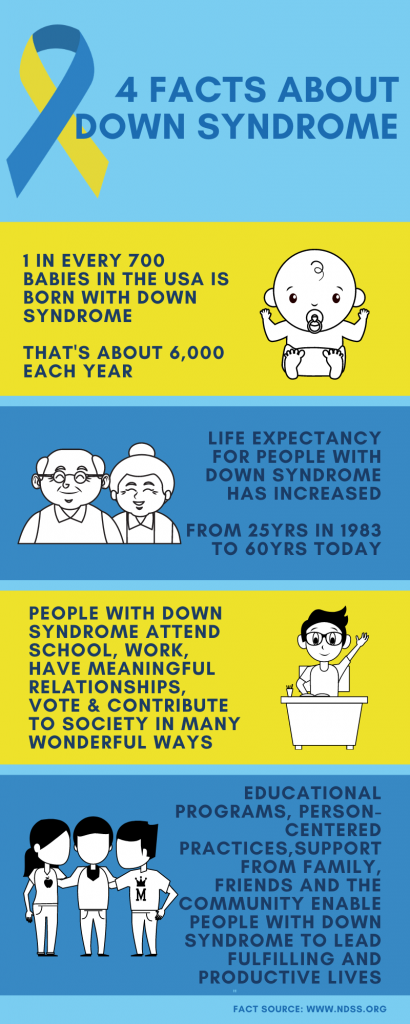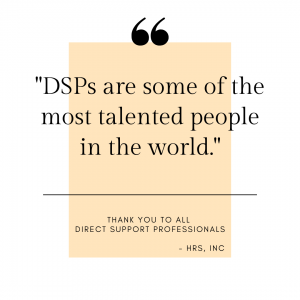By Dr. Craig Escudé
If someone you know with intellectual disabilities has behaviors, they’re normal. Everyone has behaviors.
When I’m in pain, I might squint my eyes, grimace and curl up in a ball, or I might scream and yell out causing alarm and anxiety to those around me. If my head hurts, I can get grumpy and want to cover my head to block out light and my ears to block out sound, or maybe just move to a quiet room. The list goes on and on…
Behaviors as a Language
When we hear the term “behaviors” relating to people with intellectual and development disabilities (IDD), what is usually being referred to are adverse actions that cause some sort of harm to or disrupt the lives of the person with disabilities or others around them. What’s often missed is that these behaviors are rarely “just because someone has a disability and that’s just what they do.” With careful investigation and an understanding of the “language” of behaviors, a cause can often be found. And, even better, many of these causes do not need treatment with antipsychotic medications.
The less able we are to communicate with words, the more likely we are to communicate with gestures and actions. Have you ever found yourself using hand gestures when trying to communicate with someone from another country that doesn’t speak your language? Actions do sometimes speak louder than words. When you walk by someone and they have their head down, they’re holding their right cheek and have a grimace on their face, you may be on the right track assuming that they may be experiencing some sort of dental pain. Learning patterns of particular behaviors can often help pinpoint the cause of them.
Let’s talk about a few categories of fixable causes for adverse behaviors.
Environment
What do you do when you are hot, or cold? Do you remove your clothing? Would you “steal” someone’s blanket from them? You might ask first for the blanket, but what if you were not a person who communicates with words? What if you are in a room that’s really noisy and your head hurts? You’d likely want to move to a quieter place. But, how about if you could not move yourself or communicate to someone else what you are feeling? Might you yell and become agitated?
We should think about environmental causes of distress. Many of these can quickly be remedied and can make a difference in a person’s overall state of distress.
Sensory Issues
Some people have aversions to various sensations. One of mine is something cold touching my skin. When a person with cold hands touches me, it literally feels something like a shock that makes me recoil and even sometimes give an angry look and a gruff vocalization.
Could the feel of a particular clothing item be causing distress? Is there a repetitive sound that is exceedingly irritating to some and not to others? Could certain food textures feel repulsive to someone causing them to spit the food out? The answer to these is “yes.”
Look at what a person is experiencing in sight, sound, taste, touch, and smell when a particular challenging behavior presents itself. It’s possible that you might identify a pattern that points to something that is easily avoidable.
Social
There are people we like being around and people we don’t. There may not be anything particularly “wrong” with that person at all. It’s just a preference. If we have no real choice about who is around us for hours at a time, we may express our preferences through agitation, resistance, self-abusive behavior or aggression toward others.
Learned Behavior
We should also consider the possibility that a person is doing something adverse because they learned that stopping that behavior will get them something desirable. “If you quiet down, I’ll give you a soda.” What is being taught here? I get noisy, then I quiet down, I get a soda.
Medical
As a physician, this is the area that causes me the most concern. To know that there are people who are in pain and are suffering with underlying health conditions that are not being diagnosed, or worse, inaccurately diagnosed as a psychiatric condition, is disturbing. Clinicians simply MUST learn the language of behaviors and to see them as valid presenting symptoms of illness rather than just “something that people with disabilities do.” There are a number of behaviors that can point to specific underlying health conditions that are too numerous to share here, but I want to give you a few examples:
- Spitting out food may be caused by pain when someone chews due to a dental abscess
- Becoming agitated and aggressive when heading towards the dining table may be a sign that a person experiences something painful before, during, or after eating such as reflux or aspiration
- Constantly putting their hands in their pants could be a sign of a genitourinary issue like a urinary tract infection or a yeast infection
- Screaming or resisting taking a bath could be a sign that something ‘bad” happens when their clothes come off such as abuse
- Waking up in the middle of the night screaming could be a sign of gastroesophageal reflux
- Becoming withdrawn, less alert, and less interactive could be a sign of constipation
- Being “hard to reach” could be associated with seizures
- Scratching and hitting one’s chest along with anxiousness could be a sign of chest pain
Learn More About Easily Treatable Behaviors
I’ve seen many people in my clinical career on psychotropic medications in an attempt to reduce some of these behaviors only to find later that there was an underlying, treatable cause. Imagine if you were experiencing painful acid reflux that caused agitation, could tell no one, and were then sedated so that you would no longer “act out.” You’d still have the painful reflux, you just might be too sleepy to try to let someone know through your behavior. We can do better than this! Educating families, supporters, and clinicians in the language of behavior of people with IDD can go a long way to relieving unnecessary suffering.
Take time to learn more about behavioral manifestations of underlying medical, environmental, social, and sensory conditions. Then, share what you learn with supporters of people with IDD and clinicians who treat them. It just might make a big difference in the quality of life of someone close to you who can speak for themselves.










